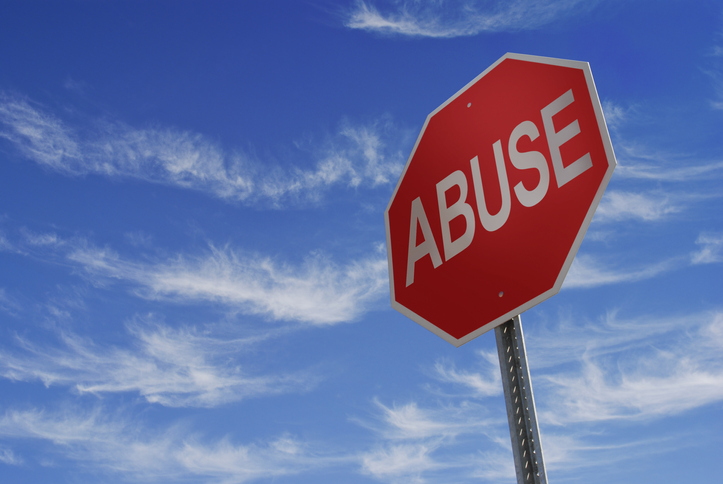 Facts about sexual abuse are hard to obtain because most often abuse is not reported. Children, regardless of the presence of a disability, are vulnerable and the perpetrator of the abuse is usually someone within the family or close to the person. Last year, NPR obtained data from the U.S. Department of Justice report that people with disabilities were seven times more likely to be sexually assaulted or abused than those without disabilities.
Facts about sexual abuse are hard to obtain because most often abuse is not reported. Children, regardless of the presence of a disability, are vulnerable and the perpetrator of the abuse is usually someone within the family or close to the person. Last year, NPR obtained data from the U.S. Department of Justice report that people with disabilities were seven times more likely to be sexually assaulted or abused than those without disabilities.
This data did not include over 374,000 people with disabilities that are currently living in group homes or state institutions around the country. Disturbing reports have shed light on the increasing prevalence of sexual assault against people with disabilities. These crimes are most frequently being committed by someone the person knows either personally or as a paid caregiver. In fact, 90% of intellectually disabled (ID) women who will be sexually abused in their lifetime, will be assaulted by a trusted individual. Both children and people with disabilities are vulnerable for abuse because they are dependent on others for their care, lack in self-protection skills, and they lack the authority or ability to distance themselves from those who mistreat them.
While sexual abuse is slowly becoming the focal point for many advocacy organizations, the hidden epidemic taking place within the disabled community needs greater attention. For the widespread abuse of vulnerable people to be addressed a multi-faceted approach that works for all survivors, including those with disabilities, is needed.
Parents are encouraged by well-meaning professionals to allow their children to be as independent as possible. But for many families, fear of mistreatment and abuse plague the decision-making process when they consider outside support services for their child. On the path to independence, families must rely on caregivers for services such as residential support, transportation, personal care, and supported employment for their adult children with disabilities. Typically, these direct care workers are poorly paid and there is rapid turnover within most provider agencies. Though most agencies are required by funding agents to screen out applicants with a criminal record, most cases of sexual abuse are unreported. Therefore, many perpetrators are eligible for hire.
It is imperative to train parents and caregivers to recognize signs of abuse because many victims do not disclose when they are being abused. Many organizations that serve people with disabilities are adding website content, training modules, and offering conferences for families, individuals, and professional caregiver about consent, sexuality, and recognizing abuse. Some individuals with disabilities, many lacking in sex education that discusses sexual abuse, do not have the language or the mechanism to report abuse. When abuse goes unreported, more individuals are victimized, and perpetrators have continued access to vulnerable individuals.
Why are the intellectually disabled at risk for sexual abuse?
As vulnerability increases, so does the risk of sexual assault and abuse. One in 100 people in the United States are diagnosed with an intellectual disability (ID). The severity of ID ranges from having slower conceptual development with social and everyday living skills that require minimum support to major developmental delays with individuals having limited communication skills. Some individuals with ID may have additional physical limitations that require constant supervision and self-care support.
People with sensory disabilities such as blindness, deafness, communication issues, and mobility issues are targeted as potential victims. The reason they are targeted by predators is simple: they are vulnerable to attack and the perpetrator is likely to get away with the crime. Factors related to an individual’s lack of understanding about the sexual intent of a predator and their inability to decline consent increase their vulnerability.
1. Sexual Education as a Tool for Parents and Students
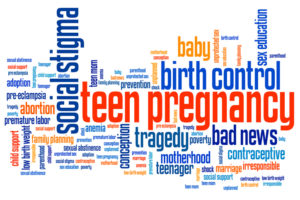 Experts suggest participation in sex education is an important tool to help people with a disability protect themselves. This includes teaching proper terminology for body parts, how to meet people and start relationships, what a healthy relationship is, how to communicate one’s feelings about another person, and what consent is. Concrete methods of teaching, such as using pictures and photos to teach sexual education, can be used to accommodate the needs of people with ID. Additionally, individually tailored programs have proven successful to improve capacity and make decisions, especially sexual choices.
Experts suggest participation in sex education is an important tool to help people with a disability protect themselves. This includes teaching proper terminology for body parts, how to meet people and start relationships, what a healthy relationship is, how to communicate one’s feelings about another person, and what consent is. Concrete methods of teaching, such as using pictures and photos to teach sexual education, can be used to accommodate the needs of people with ID. Additionally, individually tailored programs have proven successful to improve capacity and make decisions, especially sexual choices.
When people are adequately educated about personal space, developing healthy relationships and sexual experiences, their ability to recognize when something is not safe increases remarkably. A student’s Individualized Education Plan (IEP) can be tailored to meet the specific needs of the person with a disability. Parent’s must stress to their Child Study Team (CST) the importance of including sexuality curriculum with evidence-based success in educating about abuse prevention.
While sexual education can be used as an effective tool to educate individuals with disabilities, taking precautions and identifying the signs of sexual abuse as early as possible are even more important in preventing sexual abuse. Parents and paid caregivers are often the first people to observe signs that could indicate that abuse may have occurred. There is a critical need to educate and train people responsible for the care of disabled persons in recognizing these signs. Changes in appetite, sleep patterns, appearance, social interaction, and other behavioral fluctuations are all possible signs that something traumatic or abusive may have happened to a person with disabilities.
2. Ensure Routine Gynecological Care is Provided
 Receiving regular medical care, including a gynecological exam, is also an important tool for discovering sexual abuse. The American College of Obstetricians and Gynecologists (ACOG_ recommend that girls begin seeing a gynecologist between the ages of 13-15. Many professionals and parents can wrongly assume that because an adult person with a disability is not sexually active there is no reason for them to see a gynecologist. In some cases, healthcare providers may serve as the first person to discover cases of sexual abuse in patients.
Receiving regular medical care, including a gynecological exam, is also an important tool for discovering sexual abuse. The American College of Obstetricians and Gynecologists (ACOG_ recommend that girls begin seeing a gynecologist between the ages of 13-15. Many professionals and parents can wrongly assume that because an adult person with a disability is not sexually active there is no reason for them to see a gynecologist. In some cases, healthcare providers may serve as the first person to discover cases of sexual abuse in patients.
Because individuals in group home settings and institutions traditionally have required routine check-ups, it would be ideal for physicians to conduct routine screenings at visits, as well as ask concrete questions that could provide insight into possible sexual assault cases. Doctors are mandated to report signs of sexual abuse and should make needed referrals for additional support services that might be needed.
3. Increase the Role of Case Managers
 All states have laws that require professionals, such as case managers, direct care workers, police officers, and teachers to report abuse. Once a report has been made by a victim, the case manager is supposed to follow up on reports. However, in many cases these reports go unsubstantiated. One common complaint by survivors is that no one has called to check in with them, to follow up on reports, and make sure that they are alright.
All states have laws that require professionals, such as case managers, direct care workers, police officers, and teachers to report abuse. Once a report has been made by a victim, the case manager is supposed to follow up on reports. However, in many cases these reports go unsubstantiated. One common complaint by survivors is that no one has called to check in with them, to follow up on reports, and make sure that they are alright.
Case managers are usually assigned by the state and have a variety of resources to provide to survivors, as well as caregivers, on the reporting process and the next steps to take. Being able to provide resources that are useful for people with intellectual disabilities is necessary to meet their specific needs. A case manager familiar with the services available, can make appropriate referrals to ensure that the victim gets the follow up care and support they need.
4. Remove Barriers that People with Disabilities Face When Deciding to Report
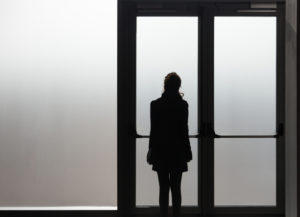 Making the decision to report sexual assault is one that is difficult for any victim. The process is unfamiliar, time consuming, and intrusive. However, recognizing and reporting sexual assault is important to ensure the safety of not only oneself, but of others becoming future or repeat victims. The barriers that exist in seeking support after an assault make it especially hard for victims with disabilities.
Making the decision to report sexual assault is one that is difficult for any victim. The process is unfamiliar, time consuming, and intrusive. However, recognizing and reporting sexual assault is important to ensure the safety of not only oneself, but of others becoming future or repeat victims. The barriers that exist in seeking support after an assault make it especially hard for victims with disabilities.
Victims with disabilities are often threatened with additional types of abuse if they report the incident, leaving them isolated and incapable of independently coming forward to authorities. They may not have access to transportation or communication devices (most communication devices don’t include language needed to notify others of abuse) that would be necessary to make a report.
In most cases, the perpetrator is someone the victim knows, and in more cases than not, a caretaker. These predators chose their victims because they know even if the person tells about the abuse, their victims are often not seen as credible when they report sexual assault due to their disability hindering their ability to communicate and provide accurate details and timelines of their assault.
5. Disability-Sensitivity Training for Court Advocates
 If justice is not actively being served for all victims of sexual abuse, it becomes a violation of basic human rights for people with disabilities. While police officers are provided training in dealing with sexual assault and are expected to treat victims with disabilities equally, there is a demand for specialized training for members of law enforcement and advocacy within the judicial system to bridge the gap in meeting the specific needs of people with disabilities. Additional support will be needed to navigate the criminal justice system.
If justice is not actively being served for all victims of sexual abuse, it becomes a violation of basic human rights for people with disabilities. While police officers are provided training in dealing with sexual assault and are expected to treat victims with disabilities equally, there is a demand for specialized training for members of law enforcement and advocacy within the judicial system to bridge the gap in meeting the specific needs of people with disabilities. Additional support will be needed to navigate the criminal justice system.
Part of making the procedure easier, would be to have a staff member trained in disability sensitivity available to assist with the investigation process. Providing a trained advocate for victims with disabilities, along with frequent breaks and very clear and direct questions in concrete terms, can aid in building the investigation. While police stations and courts are starting to incorporate advocates for people with intellectual disabilities, it is imperative that all court advocates receive training on accommodating those with special needs.
If it is determined that sexual abuse did take place, victims with a disability might need more assistance and preparation to testify. The ability to prepare the person will directly affect the outcome of the case. In taking it a step further, those who work within the judicial system will also need to understand the needs of people with ID and make the adjustments to the current procedures in court hearing so that they can provide survivors with an appropriate platform to testify.
Currently, there has been some legislation passed to hold testimony outside of a courtroom for victims with intellectual disability. This could provide for a much more effective experience that allows for people with special needs to deliver testimony in a less stressful environment.
6. Explore Legislative Safeguards
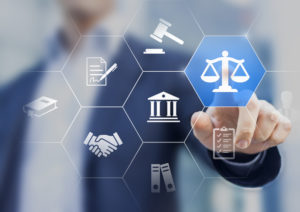 The widespread occurrence of sexual abuse among people with disabilities has led to many difficult conversations with family members, professionals, and disability advocates. Discussions about sexuality, consent, and abuse are challenging for all of us to have with our children, but it is important that all parents at least explore these topics as a small way to try to protect their child with special needs from abuse. Organizations like the American Association on Intellectual and Developmental Disabilities (AAIDD) and the Arc (formerly the Association for Retarded Children) have developed a position paper on the sexual rights of those with ID that include freedom from abuse and exploitation.
The widespread occurrence of sexual abuse among people with disabilities has led to many difficult conversations with family members, professionals, and disability advocates. Discussions about sexuality, consent, and abuse are challenging for all of us to have with our children, but it is important that all parents at least explore these topics as a small way to try to protect their child with special needs from abuse. Organizations like the American Association on Intellectual and Developmental Disabilities (AAIDD) and the Arc (formerly the Association for Retarded Children) have developed a position paper on the sexual rights of those with ID that include freedom from abuse and exploitation.
Another way State organizations, many with oversight obligations to direct service providers, can help is to disallow settlement agreements with employees and family members where cases of sexual abuse is alleged. Often these settlement agreements have non-disclosure clauses that do not allow families to discuss abuse of their family member. Increased transparency is needed in these matters to ensure the safety of all individuals and to allow parents and caregivers more information when making decisions about service providers.
Currently in the United States, many states are taking the extra steps to protect victims of sexual assault who are disabled. Proposed legislation has targeted areas that need improvement and that can help to prevent sexual assault of persons with disabilities. In California, a call to provide more money and time for prosecutors to focus on cases for intellectually disabled individuals has been made. The hope is to make it easier for police and prosecutors to be able to investigate cases and take them to trial, and then prosecute perpetrators, instead of perpetuating repeat sexual abuse.
States such as Florida, Minnesota, and Pennsylvania have designated funding specifically for trainings to teach people with ID about healthy relationships and identifying abuse. Proposed legislature in New Jersey has called for a hotline for people with ID to report abuse and operate as a resource hub for those who have been sexually assaulted. Regardless of the approach, it is critical that a large multi-disciplinary collaboration is undertaken to guarantee that the rights and safety of all people to live free from sexual assault are upheld, regardless of age, color, gender, or disability.



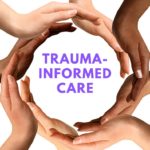

Join the Conversation